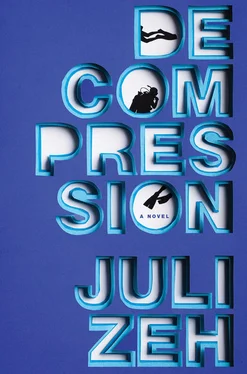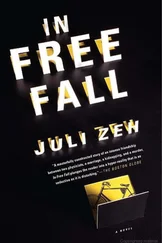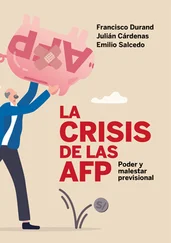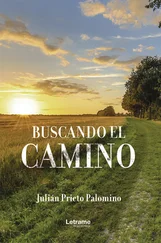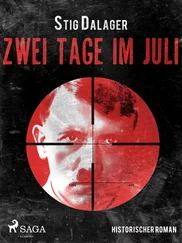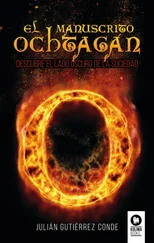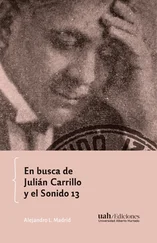Four professors seated behind a long desk. In front of it, me and another examinee, whose bad preliminary marks were stinking up the whole room. The longer the professors put him through the wringer, the more restlessly I shifted in my chair. I sat on my hands so I wouldn’t forget myself and start waving one like a geek in German class. I tried to establish eye contact with the examiners and to indicate by movements of my eyebrows that I knew the answer to every single question. In short, I behaved like a complete jackass.
At last, Professor Brunsberg, an expert in constitutional law, addressed himself to me. Notorious for his halitosis, Brunsberg had a reputation for speaking directly in students’ faces, knowing that his victims, fearful of bad grades, wouldn’t turn their heads.
“Herr Fiedler,” said Professor Brunsberg, “as you are obviously a very knowledgeable man, you’re surely familiar with the name Montesquieu.”
As if he’d pressed a button, I broke out in instantaneous perspiration. Political theory had played no part in my five years of legal studies. We were supposed to learn, for example, what constitutes an Erlaubnistatbestandsirrtum , a “permission facts mistake,” and not what dead philosophers had said about the functioning of the state. I had no choice but to nod slowly.
“Good, Herr Fiedler. Then spell it, please.”
“I beg your pardon?”
“Am I not speaking clearly? Spell Montesquieu !”
A row of blurred letters appeared before my mind’s eye: a Q , a couple of U s, some E s. I got the “Montes” part right away, I knew it was followed by “qu,” but everything thereafter lay in God’s hands.
“M-o-n-t-e-s-q-u-e-u-e,” I said.
Brunsberg slapped the table in delight. “Queue like ‘cue stick,’ right, Herr Fiedler? Is that what you’ve been doing the past few years? Playing pool?”
It became clear he wasn’t going to let it rest. He was out to get me.
“You get a second attempt, Herr Fiedler. We’re not inhuman.”
Under my jacket, my shirt was stuck to my back. A spot on my behind itched so unbearably that my brain stopped working. I produced an alphabet salad that didn’t have very much to do with Montesquieu . Brunsberg’s mood abruptly darkened. His bored colleagues looked toward the window. Outside, a couple of sparrows were fighting for the best spot on the ledge.
“Good, Herr Fiedler, or rather, not good. The question about Montesquieu has a second part. You’d like to get at least fifty percent in this examination, wouldn’t you? Then tell me — quickly — the great father of constitutional doctrine’s first name.”
I took my time. I’d learned by heart examination presentations for fourteen different forms of legal action. I was thoroughly familiar with the Maastricht Judgment of the German Federal Constitutional Court. While the sparrows’ dispute got louder, I wondered why it was that neither Montesquieu nor Voltaire seemed to have had a first name. You included the first names quite naturally when you referred to Thomas Hobbes or John Locke.
I felt at peace when I said, loudly and clearly, “Friedrich.” That was Brunsberg’s first name. The rest of the examination disappeared into fog.
When, two hours later, we were called back into the room to be given our results, I had become a different person. I couldn’t understand myself anymore. Had I really paid four thousand marks for tutorial courses, spent eight hours daily in the library, and sat for a six-hour mock exam every week just so I could be inducted into the Asshole Club? The thought that I could spend the rest of my life in an occupation where people like Brunsberg called the shots nauseated me.
Maybe life would simply have gone on all the same if they had subtracted half a point from my total exam score because of that wretched oral. I would have gotten angry, done better in the next state examination, and landed a decent job in a law office. But in fact my average was even slightly improved by the oral. Brunsberg himself gave me almost a perfect score. When he shook my hand, he bared his teeth with joy. “You’re a good lawyer, Herr Fiedler,” he said. “If you do a bit of delving into the philosophical underpinnings of the law, you’ll get even better.”
Seeing that he no doubt meant well, on top of everything else, made the interior light in my head switch on. Everything in me was radiant with realization. My friends gathered around to congratulate me. The other candidate had failed the exam; he stood alone at the window, weeping. I stopped hearing what was being said. In my mind, I’d already left the country.
Charles-Louis de Secondat, Baron de La Brède et de Montesquieu. From that time on, there was no problem that formula couldn’t solve. “Montesquieu” prevented me from passing judgments on other people, meddling in their lives, or even just handing out well-meant advice. I wanted nothing more to do with Germany, which I’ve thought of as “the war zone” ever since. When I began my new life on the island not long afterward, the fundamental expression of my worldview was “Stay out of it.”

“Maybe she’s a drug addict,” Antje said. “Lots of actresses have drug problems.” I slammed the dishwasher door and inadvertently stepped on Todd’s paw. “Don’t talk nonsense,” I said.
It sounded harsher than I meant it to. If I didn’t want to show that my tone of voice had been a mistake, the next thing I said had to be spoken just as sharply. “You’re not allowed to take drugs and dive. If she’s using, she’s obligated to tell me.”
Antje shared with Todd a bad habit of looking utterly innocent when you fussed at her. “You want to know what I think?” she asked. “I think Jola’s the kind of woman who needs to have a child. It would do her good. Think about Luisa. Or Valentina. Remember how nervous they always were? And they’re super calm now that they have children.”
Antje had a great many Spanish girlfriends who envied her blond hair and who were all raising children or expecting children or both. It irritated me exceedingly that she let pass no opportunity, however far-fetched, to present me with her own desire to have kids.
“Don’t you think a child would be a good idea for her?”
I said, “As you well know, I don’t want children. So stop with this shit.”
Antje’s head sank. I left her standing next to the dishwasher and went to bed, where a bad feeling kept me awake. When Antje quietly crept into the bed, I closed my eyes tight and turned to the wall.
The sea was quiet, the air still and for eight o’clock in the morning unusually warm. The dead calm made me uneasy. Whoever’s that quiet is up to something.
I could see the two of them from our roof terrace, where I was gathering up my sandals and a couple of towels. They were standing in front of Casa Raya, waiting for me. Theo reached out a hand to Jola and with two fingers grabbed the soft skin on the back of her upper arm. When she tried to pull away, he pinched her harder; I could see the pain on her face. He kept those two fingers clamped on her arm, stroked her cheek with his other hand, and talked at her. I could hear his voice, but I didn’t understand what he was saying.
Once I’d caught Antje with her arms raised in front of the bathroom mirror, scowling as she appraised her triceps: problem area.
Theo let Jola’s arm go and dug his fingers instead into the flesh above her hip bone, where all women who aren’t anorexic have a little pad of fat. He squeezed her twice and released her to light a cigarette.

Читать дальше
